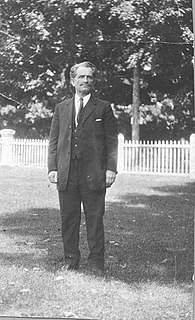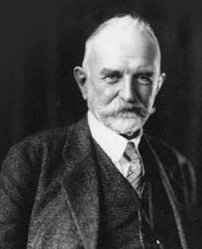A Quote by Wilhelm Wundt
The attitude of physiological psychology to sensations and feelings, considered as psychical elements, is, naturally, the attitude of psychology at large.
Quote Topics
Related Quotes
Everything depends on attitude. We are ambitious or lazy, enthusiastic or dull, loyal or undependable, according to our attitude. We get good grades or poor grades - according to our attitudes. Discouragement is an attitude. Lack of industry is an attitude. Failure to follow instructions is an attitude. attitude
Positivity psychology is part and parcel of psychology. Being human includes both ups and downs, opportunities and challenges. Positive psychology devotes somewhat more attention to the ups and the opportunities, whereas traditional psychology - at least historically - has paid more attention to the downs.
Positive psychology is not remotely intended to replace therapy or pharmacology. So when depressed, anxious or in panic or post-traumatic stress disorder, I am all for therapies that will work. Positive psychology is another arrow in the quiver of public policy and psychology through which we can raise wellbeing above zero.
Some fundamentalists go so far as to reject psychology as a disciplined study, which is unfortunate and polarizing. By definition, psychology is the study of the soul, theology is the study of God. Generally speaking, systematic theology is a study of all the essential doctrines of faith, and that would include the study of our souls (psychology).































